Risky Business—secular materialism is the philosophy of the apocalypse
7 November 2024- Late 2024
- Global Atmospheric CO2: 422 ppm
The glory of our secular materialist age is the acceleration of wealth creation, bringing with it ease, comfort, and opportunity. This material abundance is powered by the burning of fossil fuels, the energy of which is put to work to satisfy human desires using machines engineered according to the tenets of material science. This started with the industrial revolution, which has driven the economic prosperity of our age.
Here is an estimate of GDP internationally, showing how it sharply grew from about 1800, as the effects of the industral revolution started to take off.

The positive results of this revolution are all around us, although not without problems: inequality, poverty, exploitation of labor, and meaninglessness are all too readily apparent.

But it is against nature that industrialization reserves its most deadly ills. It did not take long for the skies over England, the home of the industrial revolution, to be scarred and soured by the malignant poisons of coal-powered industry. Now the same skies are relatively clear, not because we have learned better, but because globalization lets us shift the toxicity somewhere else.

Still, the plain fact is that most of us would rather live in a prosperous and well-managed materialist society of secular governance than to spend our days ploughing the soil or herding goats. And for most people, it seems, that is all the justification they need for continuing as they have been, more or less. Even when the harbingers of change pour down upon us from the skies, or rise up from the ocean, or scorch through our forests, we can only imagine a response that includes the word “more”.

It is the oldest trick of Mara, the tempter, to get us to look only at our short term pleasures. When we focus only on what is, on the narrow present, we do not see what will be; we do not see the consequences of our deeds. And what will be is shaping up, not as a future of abundance and prosperity, but as a ruined planet where a fractured remnant of humanity scrabble to eke out a bare survival in lands once teeming with life.

Driven by the extraction and burning of fossil fuels, the same industrial revolution that gave the lucky ones cheap and abundant goods kicked off an unprecedented spike in global atmospheric CO2. The following image shows CO2 going back 800,000 years.
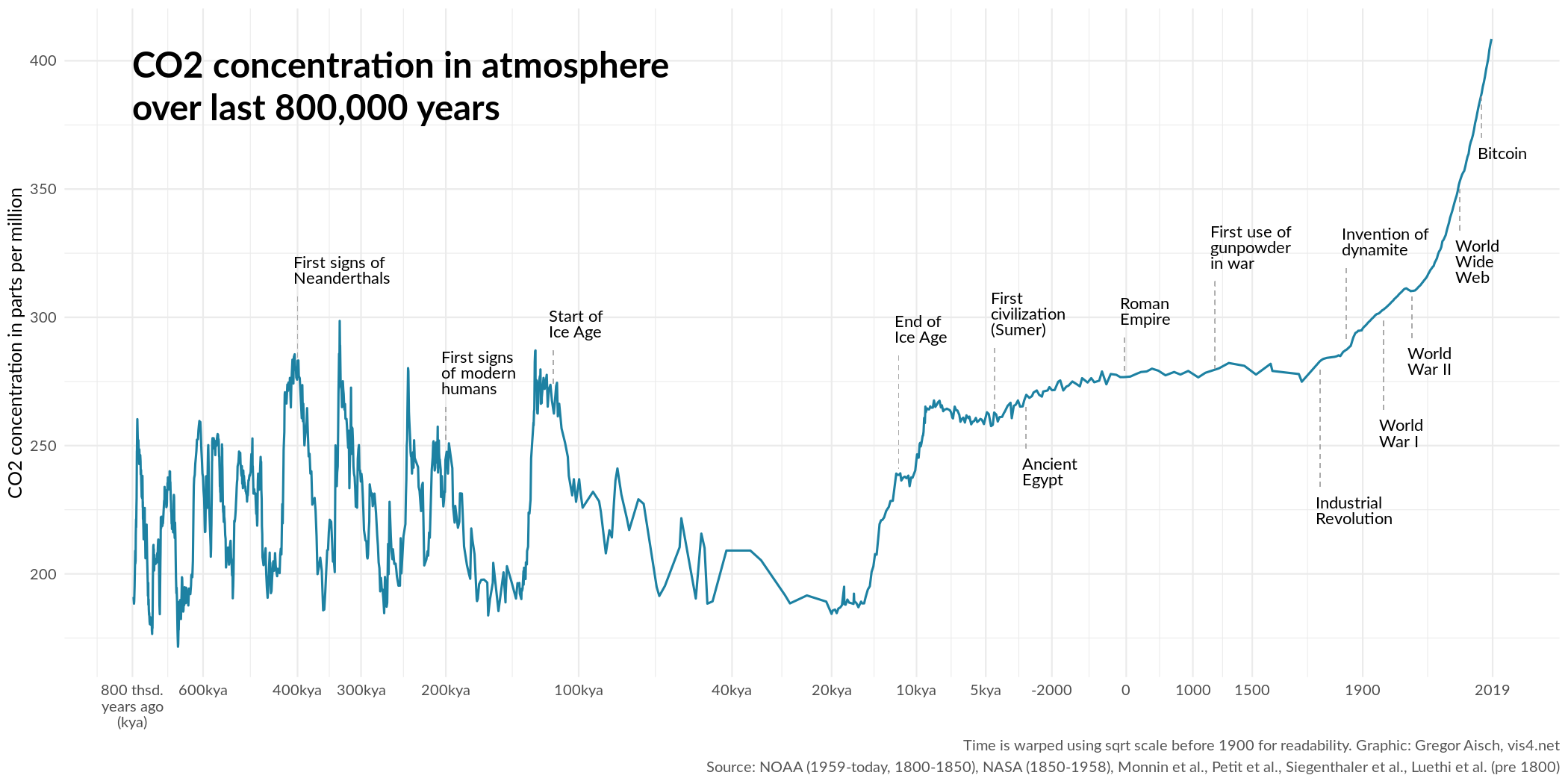
Nowhere in this time span has atmospheric CO2 been close to present levels. For that, we would have to go back 14 million years, when the global temperature was around six degrees higher than today, and ocean levels 10 to 20 metres higher. But if current trajectories prevail we are headed for global atmospheric CO2 of 600 to 800 ppm by the end of the century, conditions that have not existed on earth for over 30 million years.
How are we to make sense of this? We have, to be sure, endless analyses and measurements, grave pronouncements and carefully couched responses. That’s not what I mean by “making sense”. I’m talking about meaning, about who we are as creatures living in, with, and through these changes. It seems to me that somehow our figures and facts, theories and data, fail so completely to convey the reality that they fall into meaninglessness. What is the point of another report, another study, more detailed facts, when everyone is just ignoring all the old studies?
It is remarkable how many graphs depicting the past thousand years or so have the same hockey-stick shape. They go along from left to right, marking out the centuries with change that is little and slow. Then about two to three centuries ago, they start to curve upwards, the curve accelerating until in the post-war period they become almost vertical. Population, GDP, steel production, fossil fuel extraction, grain production, atmospheric CO2—you name it, the shape of the graph is similar.
We can trace the same pattern with pictures sixty years apart, telling the story of the human dream to fly, finally made possible by fossil fuel. In 1903, the Wright brothers made the first powered flight.

Launched in 1964 as a reconnaissance platform, the Lockheed SR-71 Blackbird remains the fastest plane to fly.
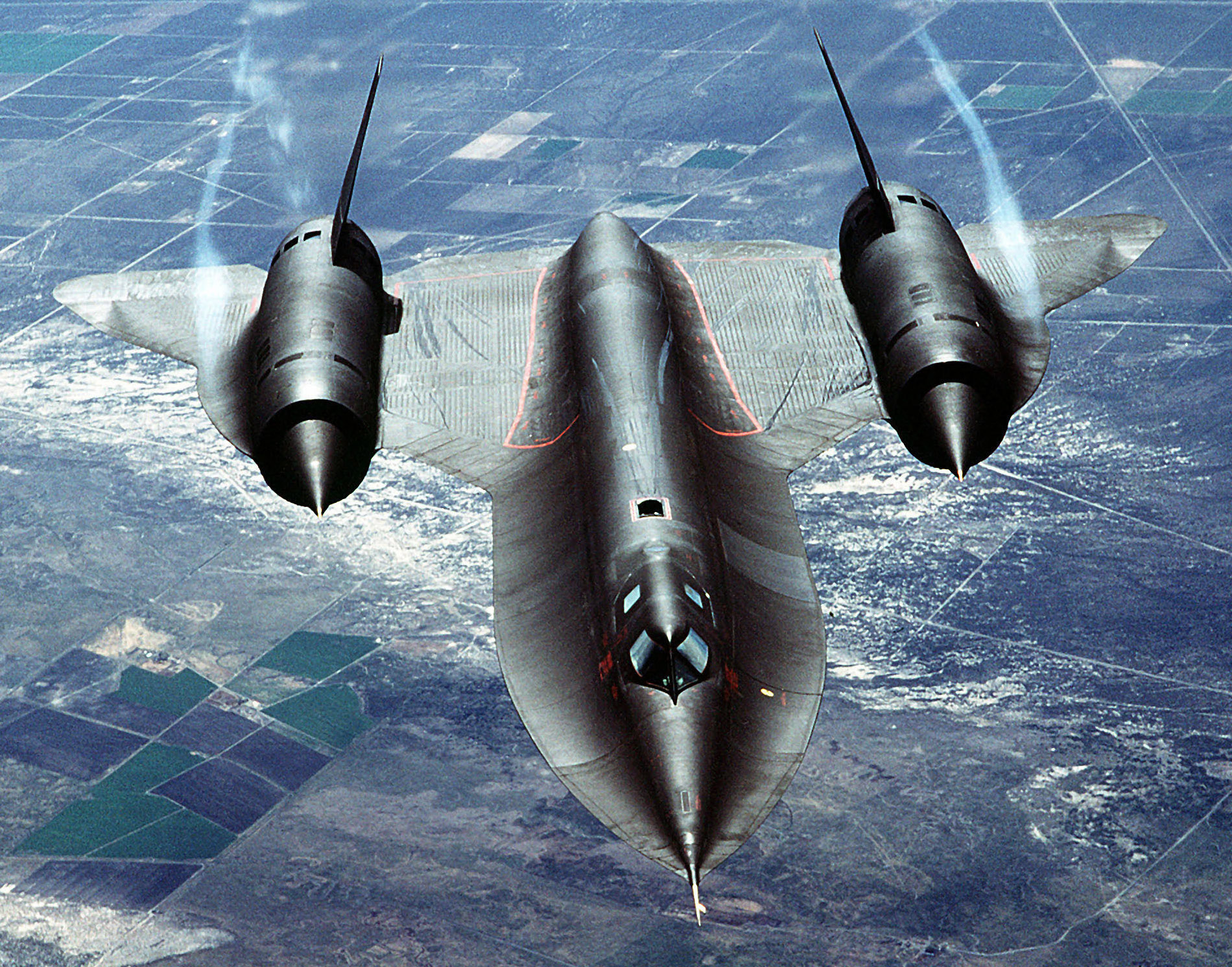
Currently in testing, the SpaceX Starship is the most powerful and ambitious space vehicle ever built. It is the lynchpin of Elon Musk’s dream of establishing a permanent settlement on Mars as a first step towards colonizing the galaxy.
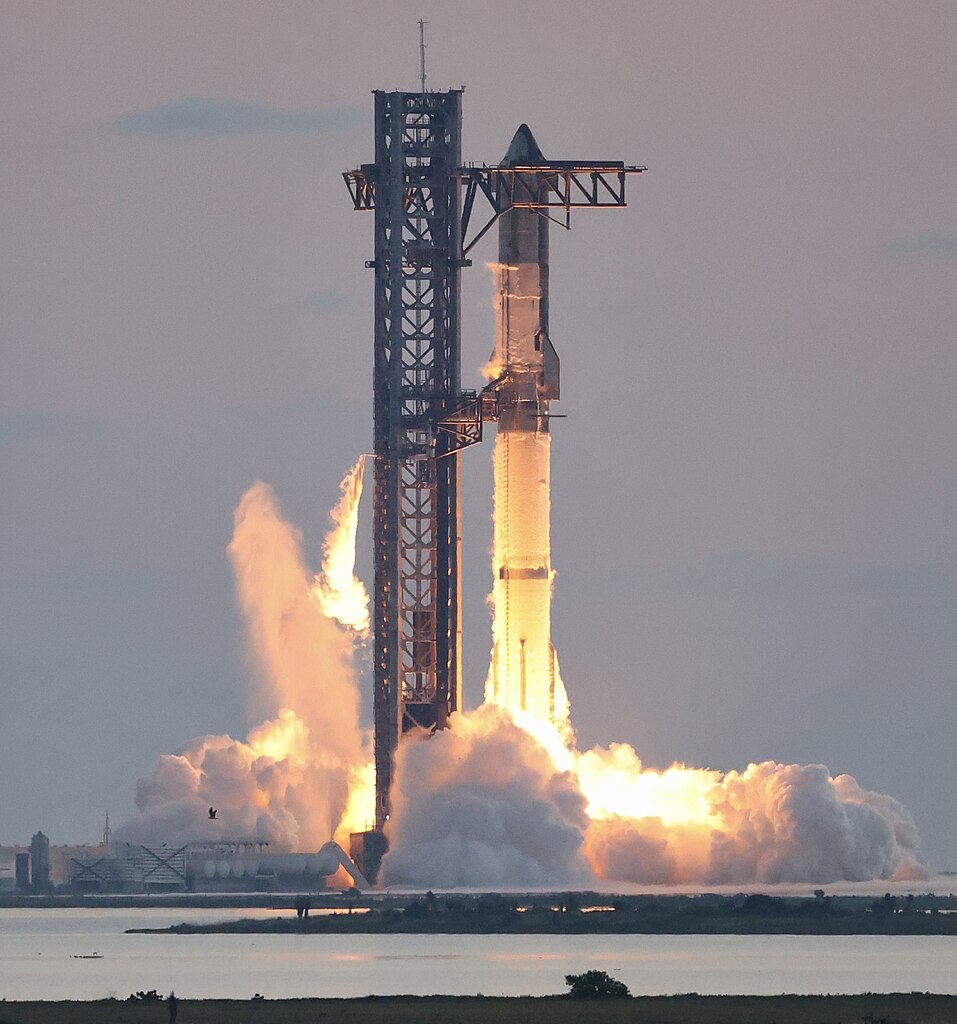
Based on Musk’s plans—1000 Starships each launching three times daily—the carbon emissions of the Starship fleet will be greater than the emissions of the entire rest of the world put together, more than doubling our human-generated CO2 emisions, and condemning our plant to certain death. For him, this is justified because it will enable us to settle other worlds. This is madness; the earth is our only home. Thus has the dream of flight, in 120 short years, curdled into a nightmare beyond imagining.
There is another trend that follows a similar curve: atheism; or more generally, belief systems of secular materialism that see the world as made up of matter and derivatives of matter. It’s hard to know much about how many non-believers there were in the past. Surely more than we imagine, but still, probably quite few. US census number start at about 2% after World War II, growing to 8% in 1990, 14% in 2000, and about 25% today. Presumably some of that is simply that people are more willing to say that they are atheists, but there is no denying the rapid growth of non-belief. And there is no denying that it follows the same trajectory as economic and material development over the same period.
The demonstrable successes of material science, and its astonishing applications in industrial machinery, stand as a monumental argument for materialism. We often think of science as something that is “true”, that has convinced the world through the clarity and correctness of its axioms and theories, and the way its hypotheses are born out by evidence in the real world. But if this was all there was to it, science would remain an interesting object for academic study.
No, materialism has conquered the world not because of its theoretical correctness, nor because it agrees with the evidence. We no longer call to the gods in our fear of the dark, because we because we can flick a switch and a light goes on. We no longer pray for release from sickness, because we can take a pill and get better. We no longer pray for miracles, because we have made machines that fly and sent a man to the moon.
The brilliance of science shines in its effects. And those effects are manifested in the world by machines that run on fossil fuels.
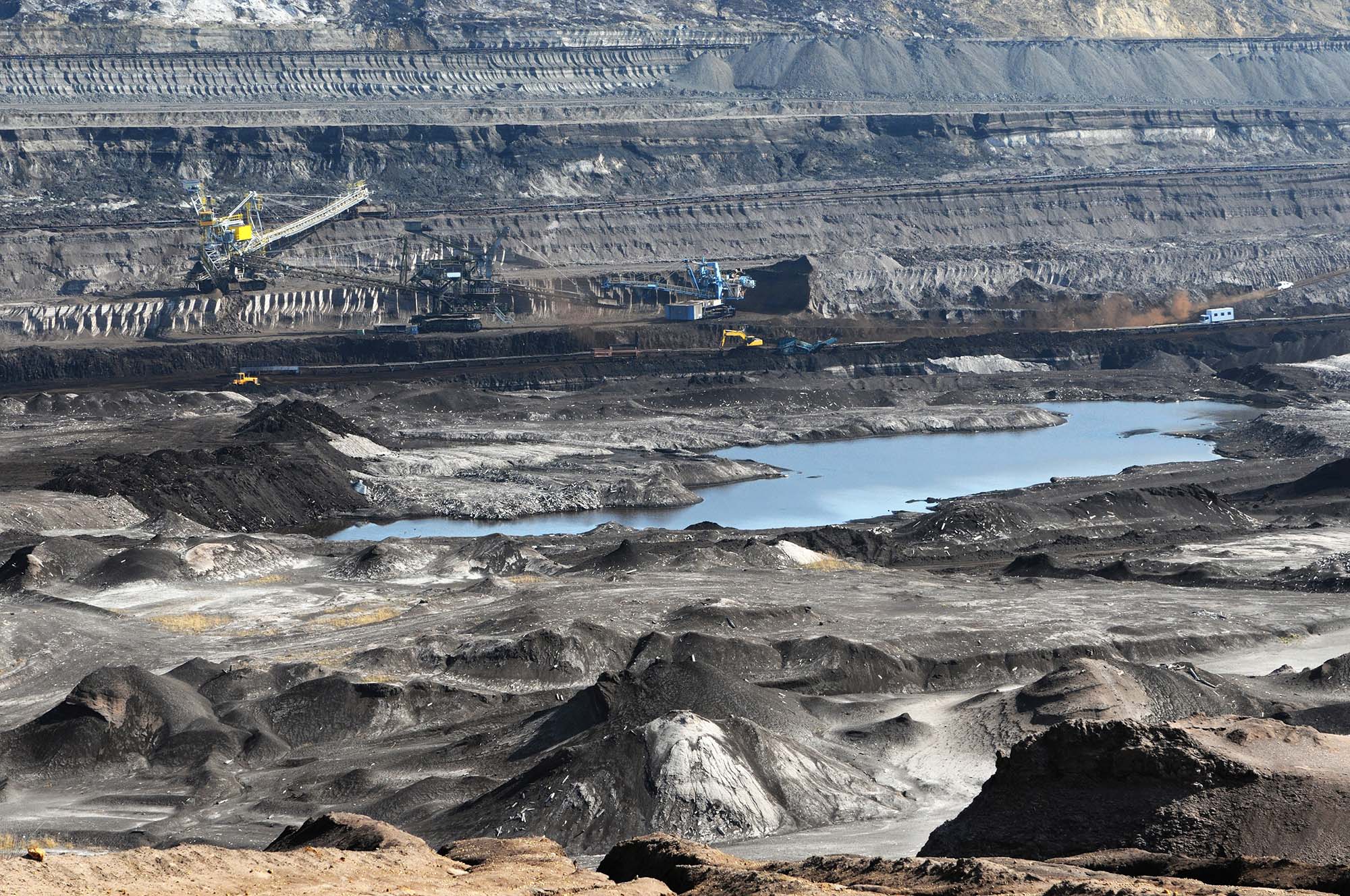
What would have happened, I wonder, if our world had not been abundant in fossil fuels? Imagine that Isaac Newton had come up with his astonishing insights into physics, laying bare with precision and clarity what had been seen only in partial glimpses. At the time, his theory was considered extremely difficult, intriguing, yet radical and untested. Perhaps the intelligentsia would put it to the test and even develop some machinery based on it. Lacking fossil fuels, perhaps they’d use windmills or watermills to grind grain or weave cloth. I think it’s unlikely, though, that it would have changed the world so dramatically. Many of the things we take for granted, like transportation, still rely heavily on fossil fuels, and I doubt there would be a simple pathway to air travel or space exploration without fossil fuels. Certainly plastics and other petrochemicals would not exist. Most likely we would have enjoyed cheaper grain and better engineered carriages.
In such a world, how would we see science? It is not obvious that what we consider science would displace other ways of knowing. Certainly Newton did not think so; he poured much of his thought into theology and alchemy. Perhaps a world with modern physics but without fossil fuels would be the best of worlds, with a gentler, slower form of material progress. In such a world, science would, I believe, be seen as a true way of understanding certain physical phenomena, but it would not have been co-opted to colonize and supplant other ways of knowing.
But that world is not this world.
My point is a simple one. It is not science alone that has changed the world, but science powered by fossil fuels.

Religions have flailed ineffectually in the face of the relentless success of material science. Hard-liners who rail against the decadence of modernity are dismissed as cranks, while reasonable moderates speak of how their religion is fully in agreement with science.
Spiritual teachers anxious to appease materialists offer themselves as humble supplicants at the altar of matter, soothingly reassuring atheists that they too may be saved, eager to leap aboard the latest trend of technology. We’ve grown embarrassed at our faith, and have given up any meaningful claim to speak of a reality beyond what science can reveal.

All around us, in any number of ways, we are now smashing into the limits of our planet. Industrial materialism promises us infinitely growing abundance; but what if this is just not true? What if, rather, we have been playing like irresponsible teenagers while mum and dad are away for the weekend? We’ve been sculling the booze, maxxing out the credit cards on hookers and blow, trashing the house, and only now, after 48 hours of debauchery, are we starting to worry that soon there’ll be hell to pay.
Mum and dad are coming home.
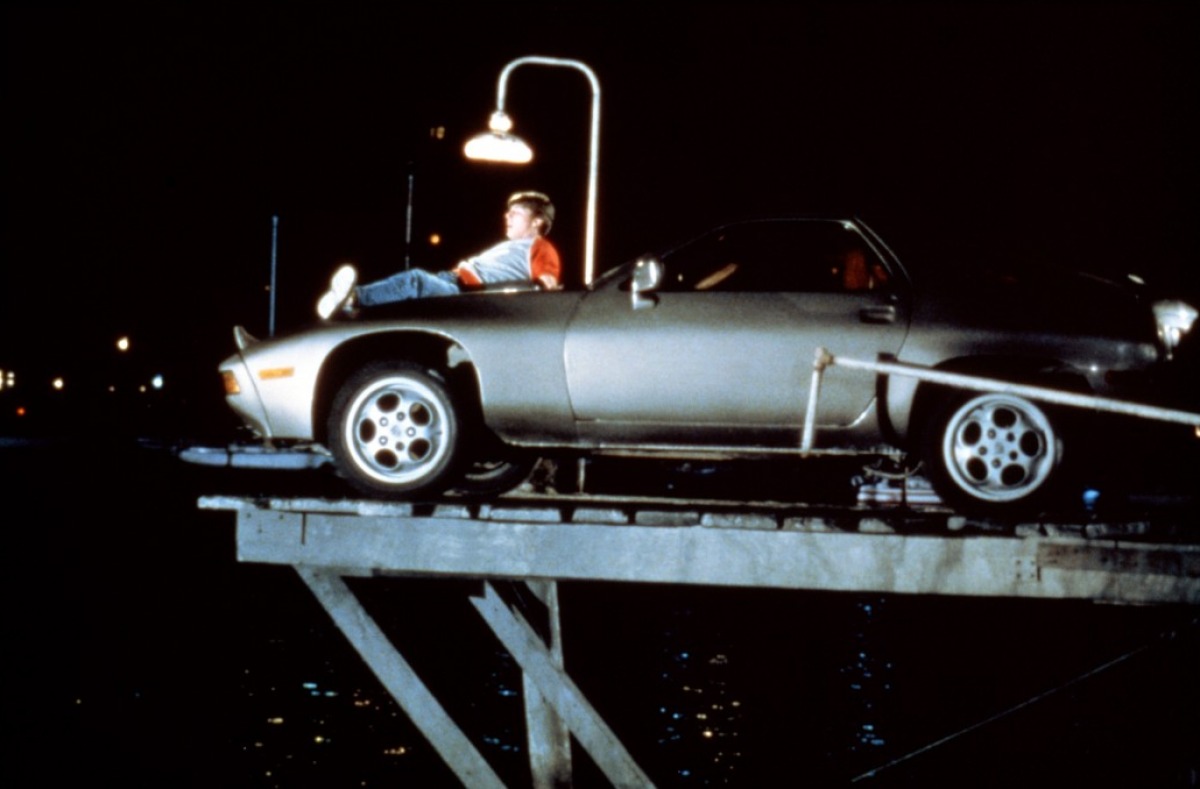
If we see industrial materialism as the handmaid, not of human flourishing, but of short term indulgence leading to medium term calamity, it makes us look at materialist philosophy in a different light.
Before the triumph of industry, people saw the earth as sacred. They would worship the gods, make a sacrifice, and pray for the abundance of this year’s crop. They believed that if they lived well, and their leaders were righteous, they would flourish.

Modernity poo-pooed all that and told us that we can ensure the fertility of the soil by adding petrochemicals and grinding up the earth with mighty machines. And sure, it worked for a while. Our population exploded, and somehow we could feed most of them. If we keep our head down and don’t ask too many questions, it seems to be going fine.

But what of that other, hidden thing? The day that we cannot see? That time in the future when the ice has melted and the coiling dragons of oceanic currents have failed; when the jungles are deserts and the fish are rotting carcasses; when the plankton has vanished; when fire hunts naked in cities; when the endless expanses of wheatlands are reduced to howling dust. On that day, what oil-powered machine, what petrochemical will restore life to the lifeless earth?
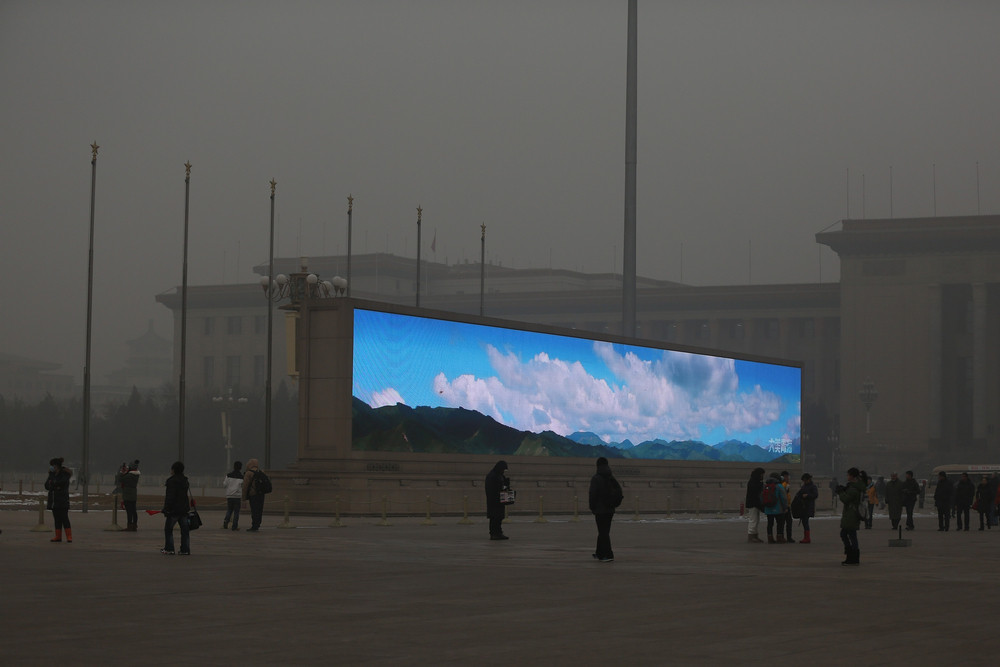
We have relentlessly scoured the sacred from the world, filling the earth’s veins with acid, scoffing contemptuously at those who worship the sky and the rivers. We point and laugh at how useless their endless rites were, how cruel their sacrifices; and how, even when they served their gods properly with ritual and oblation, they were still struck with drought or failure.
Yet it is a singular fact that none of them, not a single one of the supposedly benighted superstitions of the past, bequeathed us a planet decimated with ruin. When it comes to apocalypse, religions like to talk big. We speak of the end of the world, our words laden with prophecy and portent. Yet our dooms are, in the end, domestic affairs, more local tragedy than global annihilation.

Could it be that the ancient traditions of the world did, in fact, hold a precious wisdom, one through which humanity was able to find its balance in nature? Could it be that the arrogant, reductive elimination of myth and meaning, of the divinity in the stars, is leading to the exact result foretold in the ancient wisdom?
Hereafter, when kings shall be stingy and unrighteous, and when folk shall be unrighteous, in days when the world is perverted, when good is waning and evil waxing apace—in those days of the world’s discontent there shall fall no rain from the heavens, the feet of the storm shall be lamed, the crops shall wither, and famine shall be on the land. Then shall the clouds gather as if for rain from the four quarters of the heavens, but they shall flee away without raining. (Jātaka 77)

The great sin of our time, the great sin of all time, has been aided and abetted by religious leaders—weak in faith, backwards in knowledge, secret devotees of matter—who, rather than recognizing madness and evil for what it is, choose to ally themselves with the great lie of industrialized materialism: that you can have whatever you want and never have to pay the price.
Now, to be sure, it is entirely possible to live by a materialist philosophy that elevates humility and interconnectedness and repudiates excess, just as the reverse is so painfully apparent in the many religious people who worship only at the shrine of Mammon. But I’m not debating philosophical possibilities here. I’m pointing to the historical reality that the ascendancy of industrialized materialism has been accompanied by the rejection of the sacredness of all things and the embrace of materialist secularism.
Modern advocates of Buddhism often present their vision as an essentially rational one that seems little different from a materialist account. Yet in the early Buddhist texts we find nature is imbued with all manner of divinity. Deities inhabit the clouds and the thunderstorms, they shine with the sun, or protect a site for building. Goddesses live in trees and flowers, and the moon is as divine as the rivers. Terrifying dragons inhabit the earth, while trolls lurk in lakes and fairies vanish in the deepness of the mountains.
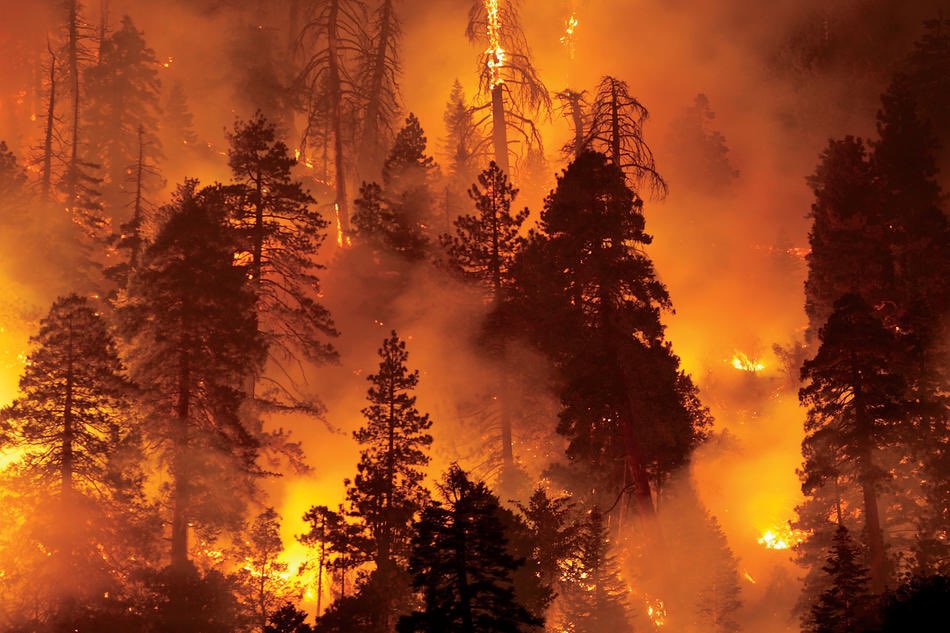
Are these merely the quaint relics of a older, more superstitious animism that the Buddha somehow could not escape? Or are they telling us, in the language of myth and poetry, of a fundamental and profound truth of our world?
Could it possibly be we, rather, who are the superstitious ones, we who believe that certain combinations of chemicals determine our consciousness, and that other combinations of chemicals give rise to the life in the oceans? Who in the face of everything cling to the idea that certain other combinations of chemicals or exertions of industrial might will be our salvation, not our damnation? The belief that mastery over matter leads to prosperity and abundance forever, an infinity of riches on a finite world—is this not the rankest, most base, most plainly delusional of superstitions?

Gods, according to Buddhism, are pretty much like like you and I. They are just born temporarily in a more exalted, more powerful state. And like us they feel the full measure of emotions.
One story tells us of a monk who cut down a tree, and in doing so injured the arm of the tree nymph’s son. She decided to kill the monk, only to change her mind at the last minute. If this is how the gods react to the felling of a single tree, what are they thinking now as they gaze upon the ruin of the world?
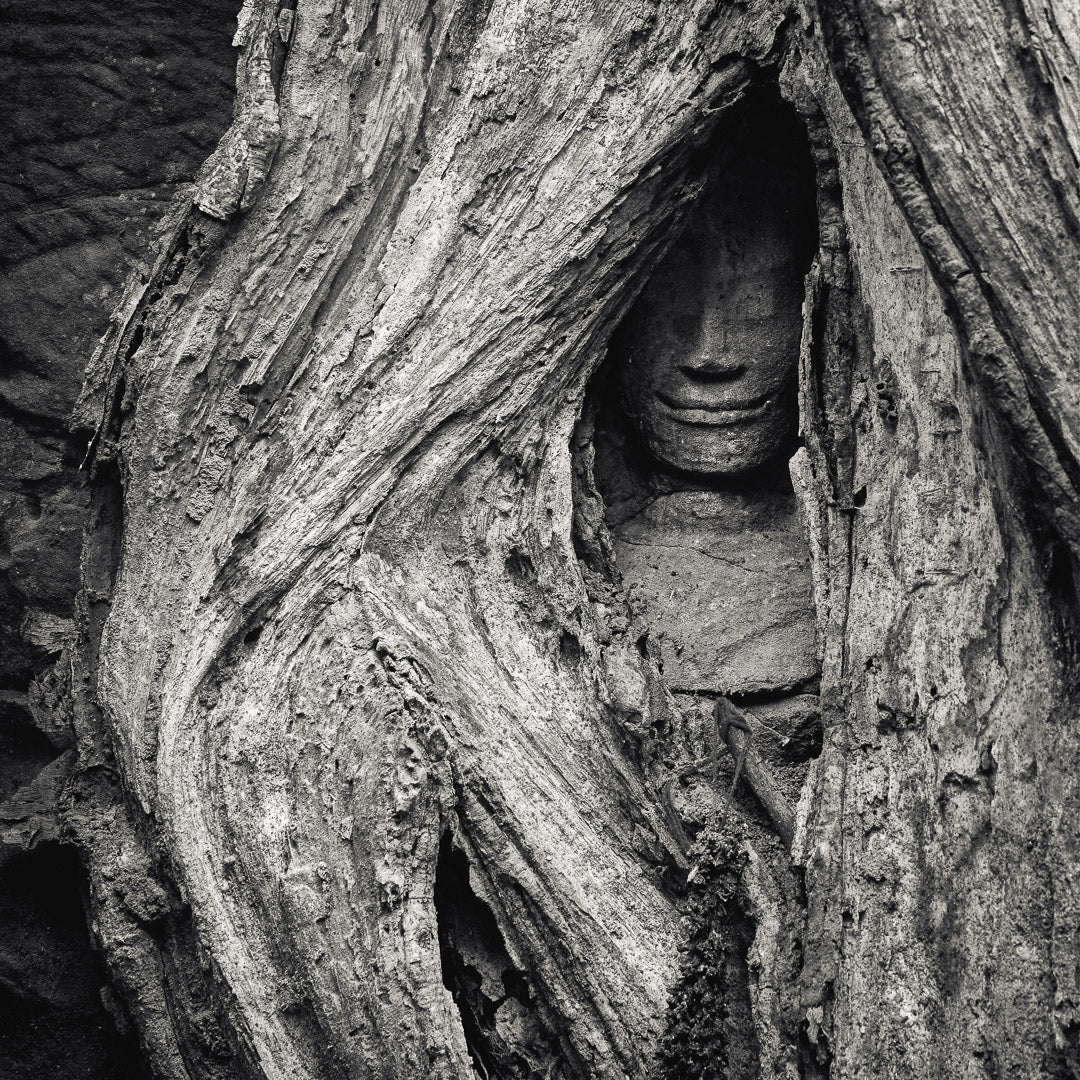
Another story tells how the gods of an island, disgusted by the humans’ reckless exploitation and pollution, sent a tsunami to sweep them all away.

The gods have blessed us with overwhelming abundance—sparkling water, fresh air, fruits in spring, and sun to warm our backs. But we have ceased our offerings to them, even though we learned in time that they asked for no rough sacrifice of life, human or animal, but merely a few flowers, a spoon of rice, and some kind words. They asked so little and gave so much. If it were you, would you rise to the occasion and show infinite patience and forgiveness?

Pay attention right now: can you feel it? There is a change in the air, a shift in the skies.
The mood of the goddess has soured. We do not know what she will do next, or what measure of sacrifice she will exact. We can only wait, anxious and guilty, hoping beyond hope that she will grant us mercy.
Our sciences scream into the silence while our moralities crumble and our religions founder. How did we get so lost?